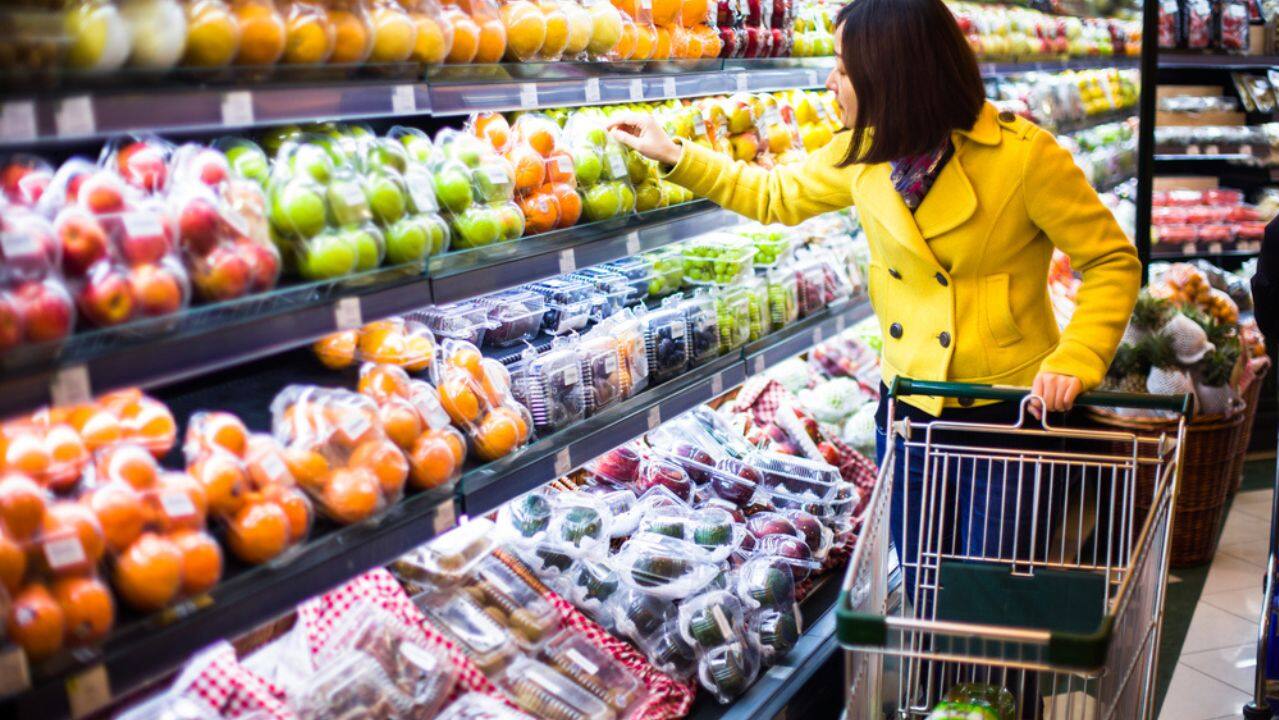Parliamentary report recommends windfall tax on grocers if Competition Bureau finds price-gouging proof | CBC News
If Canada’s Competition Bureau finds that grocery store giants are profiting excessively from food inflation, the federal government should consider slapping a windfall tax on those excess profits.
That’s one of the main recommendations put forward in a new report released this week by a parliamentary committee that has been looking into the causes and possible solutions to sky-high food prices.
The House of Commons standing committee on agriculture and agri-food has been probing the issue since last year, when food prices soared to their highest level in 40 years amid surging inflation.
The finished report outlines 13 recommendations by MPs from all parties on the committee about how to address inefficiencies in the system — and ideally bring down prices. And while the government is not obligated to implement the findings, they are nonetheless interesting.
While the report makes numerous recommendations — including on such issues as food waste, labelling rules, measures to address food insecurity in remote areas, changes to the tariff regime, improvements to supply chains and the removal of red tape around hiring workers — it is the potential of a one-time tax on record profits at grocery chains that has drawn most of the attention.
“If the Competition Bureau finds evidence in its upcoming market study that large grocery chains are generating excess profits on food items, the Government of Canada should consider introducing a windfall profits tax on large, price-setting corporations to disincentivize excess hikes in their profit margins for these items,” the committee’s report said.
Concerns of profiteering by big grocery chains became acute this year, so much so that the heads of Canada’s three biggest domestic food companies were called to testify in front of the committee in March to respond to allegations.
At a committee hearing in Ottawa this week, the heads of Loblaw, Metro and Empire Foods faced tough questions from parliamentarians about why food prices continue to skyrocket. All three pushed back forcefully against allegations they are profiteering from high inflation.
“No matter how many times you read it on Twitter, the idea that grocers are causing food inflation is not only false, it’s impossible,” said Loblaw Companies Ltd. president Galen Weston, who found himself the unwilling face of the backlash for much of the past year.
“Our retail prices have not risen faster than our costs,” he told the committee.
The grocers contend that after covering their expenses, they make as much money on selling food as they always have, but the committee heard differently.
D.T. Cochrane, an economist with Canadians for Tax Fairness, said profit margins in the grocery industry almost doubled during the COVID-19 pandemic, which began in early 2020, from the level they were at for most of the past 20 years.
“Corporations are not just passing along higher costs,” he told the committee. “[They] have a lot of pricing power [and] unsurprisingly, they are taking advantage of it, to the detriment of Canadians.”
Grocery prices rose by 9.1 per cent in April compared with a year earlier, more than twice the official inflation rate of 4.4 per cent. At one point last year, Canadian grocery bills were going up at a 13 per cent annual pace.
Competition Bureau probe limited
The Competition Bureau announced last year that it would launch an investigation into the matter of profiteering in the grocery sector.
But the scope of the watchdog’s probe isn’t wide enough to include relationships between grocery chains and their suppliers, which limits its utility — and the likelihood of finding anything untoward going on.
Canada’s consumer watchdog says it will study competition in the grocery industry and whether having more retail competitors could push back on price increases. But some industry experts say the issue goes deeper than how many grocery chains there are.
Mike von Massow, a food economist and associate professor at the University of Guelph in Guelph, Ont., said he liked some of the report’s recommendations — such as discouraging food waste and addressing critical food insecurity issues in remote communities. But on the topic of slapping windfall taxes on grocery chains, he said he has some concerns.
“Notwithstanding theatrics in the hearings, there was no definitive evidence of any significant ‘greedflation,'” he said in an interview with CBC News on Thursday. If the bureau finds evidence of it, he’s open to the idea of using taxation to discourage it, but it’s not as simple as it sounds.
“We often see with new policy initiatives that there are either loopholes or that it causes something that was unintended,” von Massow said. “It would need to be done very, very carefully.”
The Retail Council of Canada, which represents the major grocery chains, said it welcomes the report’s recommendations. “The report makes it clear that multiple factors have led to this inflationary environment, most of them of a global nature, driving up input costs in the supply chain long before these foods get to Canada’s grocers,” the council said in a statement.
“The combined roles of cost spikes for feed, fuel and fertilizer, compounded by supply chain disruptions, labour shortages, and climate events, have been the real drivers of food price inflation,” it said.
“While we welcome the collaborative tone of the report, we would caution against increased government intervention in the operational aspects of the retail food business.”
For all the latest Business News Click Here
For the latest news and updates, follow us on Google News.



